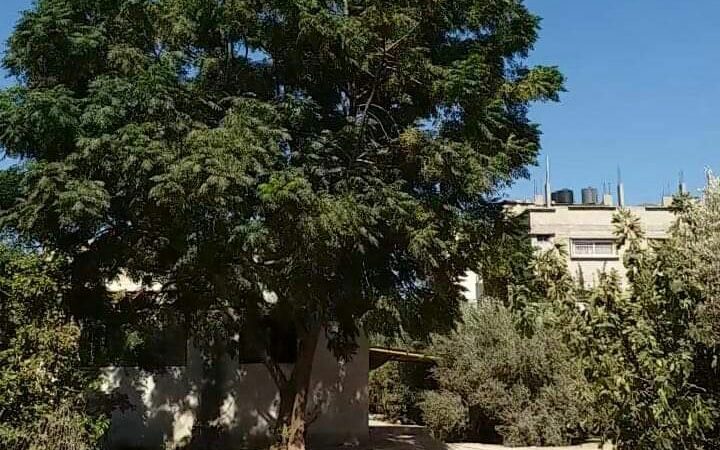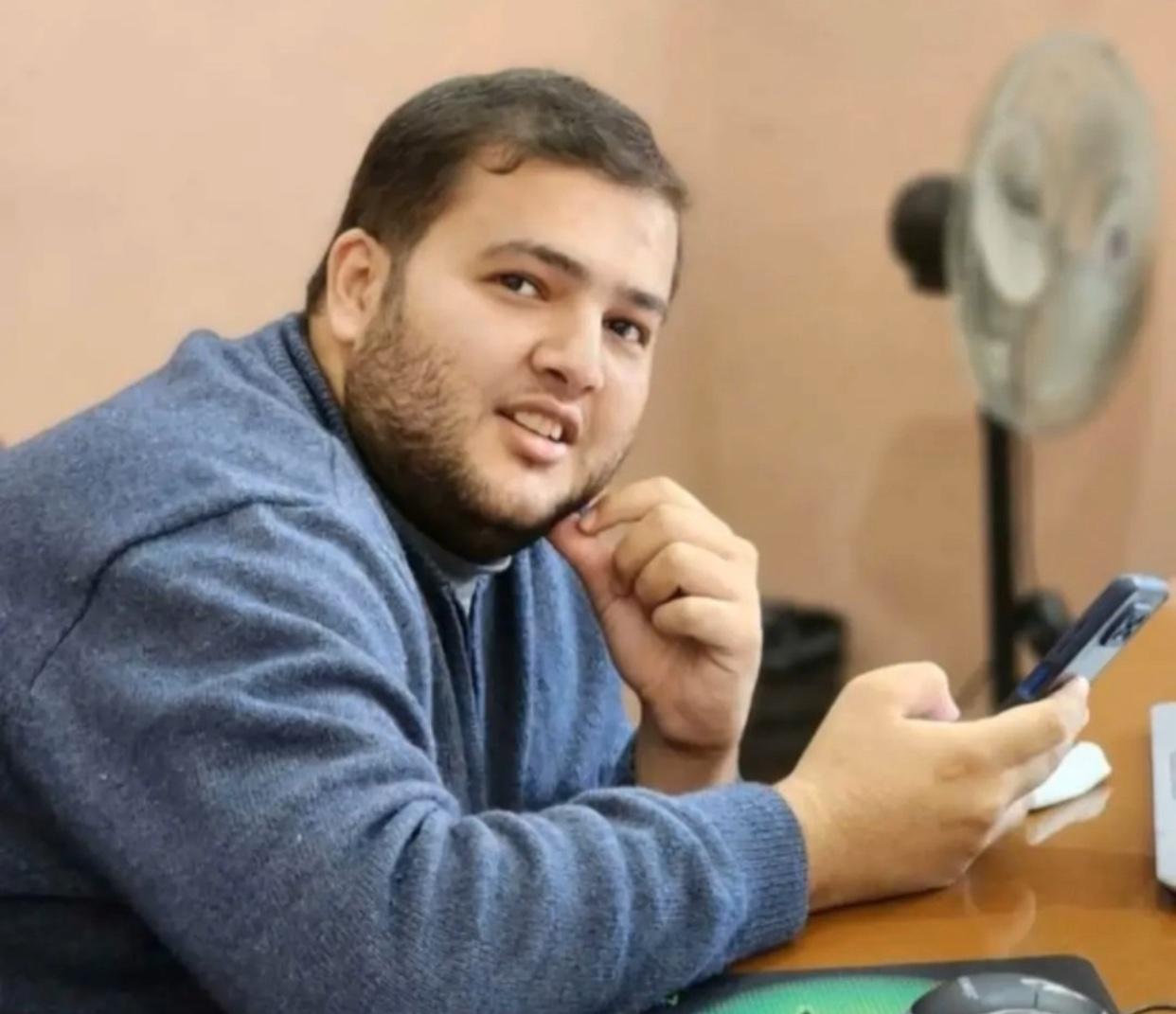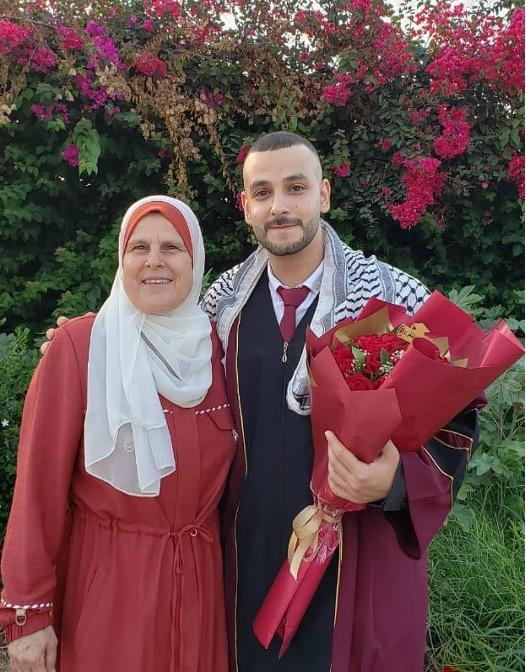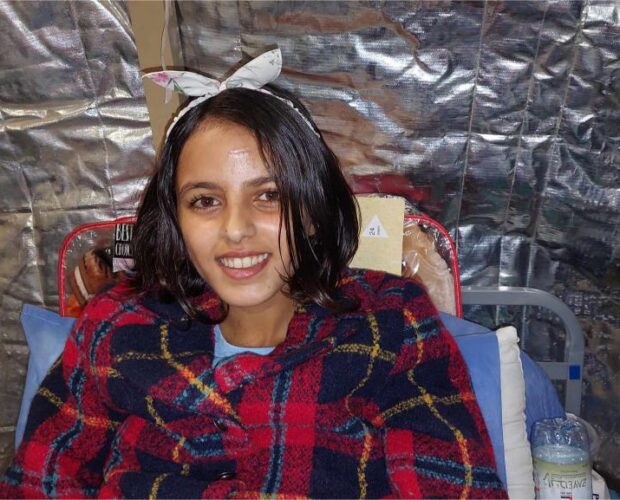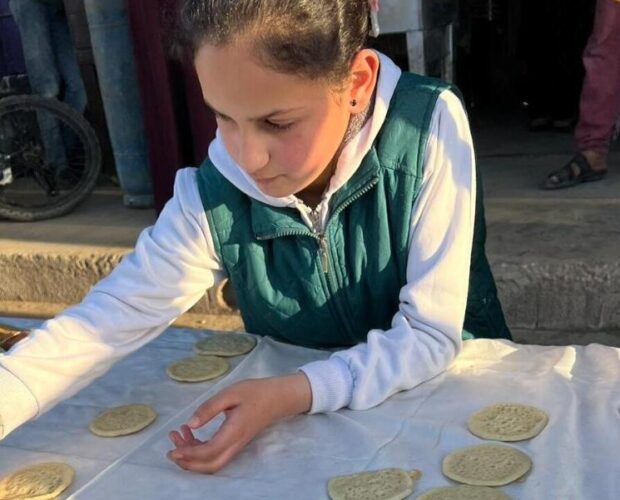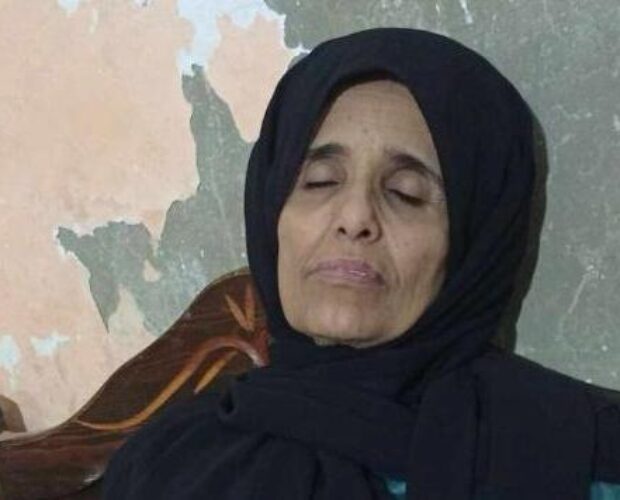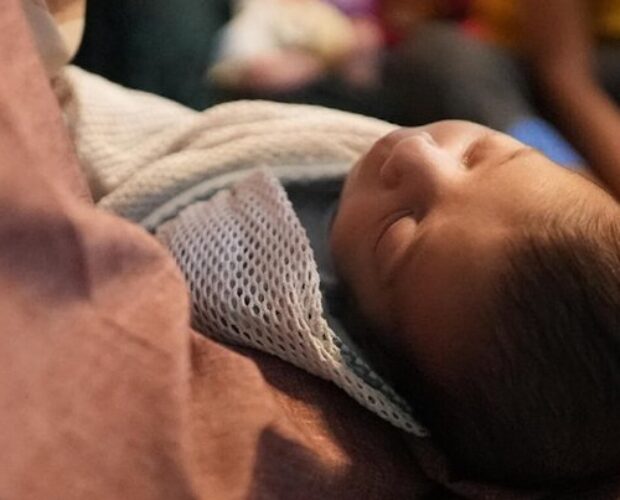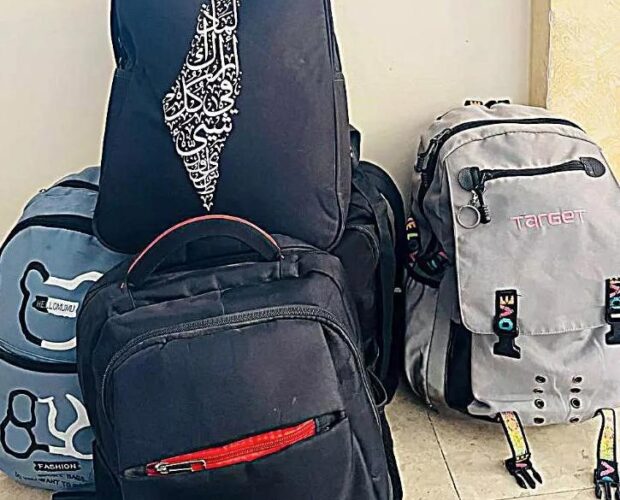 ‘‘Are you free to attend the bigger show happening on Thursday?’’ I asked my family, eager to showcase my scriptwriting and acting talent onstage.
‘‘Are you free to attend the bigger show happening on Thursday?’’ I asked my family, eager to showcase my scriptwriting and acting talent onstage.
We were playing Snakes and Ladders and watching a recorded rehearsal of my comedy play, which my friends and I had performed on the stage at the Islamic University of Gaza on Saturday. My parents and younger siblings were sitting beside me on our living room sofa. Noor, my older married sister, was watching with us via Zoom.
Such a scene hardly ever occurred, with my parents occupied by their work, my siblings Abd and Roaa attending their own school, and Noor studying abroad for her master’s degree.
Bursting into uncontrollable laughter with wide smiles from ear to ear and eyes full of tears of mirth, they kept mocking me and laughing hysterically. I couldn’t hide my grin.

Their reactions were enigmatic, their expressions unpredictable yet delightful to witness, leaving me mesmerised and gazing at their gorgeous smiles; barely could I concentrate on their comments, as I was so pleased.
I wished for this fleeting moment of pure and unbounded happiness to be everlasting, but unfortunately, the war ruined it all, deflating us and our dreams again.
In the midst of our joyful moment, a sudden bomb fell nearby, breaking our hearts. Our house shook as if the ceiling was about to fall down over our heads, and the sound of bombardment echoed powerfully. The explosive sound brought me back down to earth, restoring my surroundings.
Instinctively, I rested my hand upon my heart in an unsuccessful attempt to steady its frantic beating. My other hand found its way to my mouth, where I started biting my nails, a habit that I always turned to when feeling stressed.
My siblings rushed to sit beside my parents, grabbing their hands tightly. I, however, remained frozen in place, shocked by the deafening sound of the abrupt bombardment, which I hated more than anything.
As the chaos unfolded, my sister, Roaa, only seven, dropped her beloved teddy bear on the floor, far away from her small hand, as she was unable to hold it any longer. She sought refuge in our mother’s lap, tears streaming down her innocent face. ‘‘I am scared,’’ Roaa cried out. ‘‘I don’t want to…’’
She tried to find peace and serenity in our mother’s storytelling and gentle stroking of her curly hair, as she did whenever she felt stressed. However, this time, my mother’s efforts to soothe my sister were in vain.
‘‘What was that sound? Bombardment!’’ exclaimed Noor. The video feed lagged for a moment before we lost the Internet connection entirely. We were sure that she wanted to call us again, hoping to confirm that the sound she heard was not actually the sound of bombs, but our region no longer had Internet access due to the heavy bombing. We couldn’t reach Noor, and she couldn’t reach us either.
My father attempted to reassure us. ‘‘Don’t worry, it is going to be fine,’’ he repeated calmly. Yet, we didn’t feel fine. We could see his fear of losing one of us; it was crystal clear in his eyes.
Later he said it was Noor, living abroad, who occupied his thoughts at that moment. He had wished he could reassure her before the Internet connection was lost, but there had been no silver lining in sight.
He turned on the TV to see what was happening. The Al-Jazeera channel reported that the Israeli military had killed a prominent leader in the Islamic Jihad movement along with his brother and young nephew, in an airstrike targeting his apartment in a residential building.
My mother was crying. ‘‘What did this little innocent child do to deserve death?’’ she whispered in a broken voice. ‘‘He is still a young boy!’’
As if that weren’t enough, our building’s power shut off completely. My father asked me to turn a flashlight on so that he could keep his eyes on us like a hawk. He kept checking on us to make sure that we were all feeling alright.
However, none of us spoke or even uttered a single word. Silence hung heavily in the air. The only sounds that reached our ears were faint noises from the radio, switched on by Abd to keep us updated on the latest news amidst the sudden destruction and power outage, and the harsh buzzing sound of the ‘‘zannanah,’’ Israeli drones flying overhead that are ever-present in Gaza’s skies, even during our daily lives in times of ceasefire.
When night came, I accompanied my father to my bedroom to retrieve five single mattresses. We placed them side by side in the living room, as it was the only room without windows. This way, we could be somewhat far away from any danger.
My family tried to catch some sleep. Or perhaps they did, but I didn’t. I kept myself awake, submerged in my thoughts. Earlier, I’d wished that those moments together would last forever, but now I wanted the memory gone, because it had become tarnished with terror.
I started questioning why we can’t have happiness, and why even the special, unusual moments have to be ruined. Why must we suffer, I wondered, and agonize under the shadow of the Israeli occupation?
I wrapped up my excruciating night with two painful questions: “How long will it take for me to forget this?” and “Will I ever be able to forget this?”
In the blink of an eye, our lives had been turned upside down again. Home should be a haven of safety and happiness, I thought. It should be a place to share precious moments in tranquillity, yet fears and tears occupy the stage at this time—not art and laughter, as I had hoped.
This story was co-published with Palestine Deep Dive.


